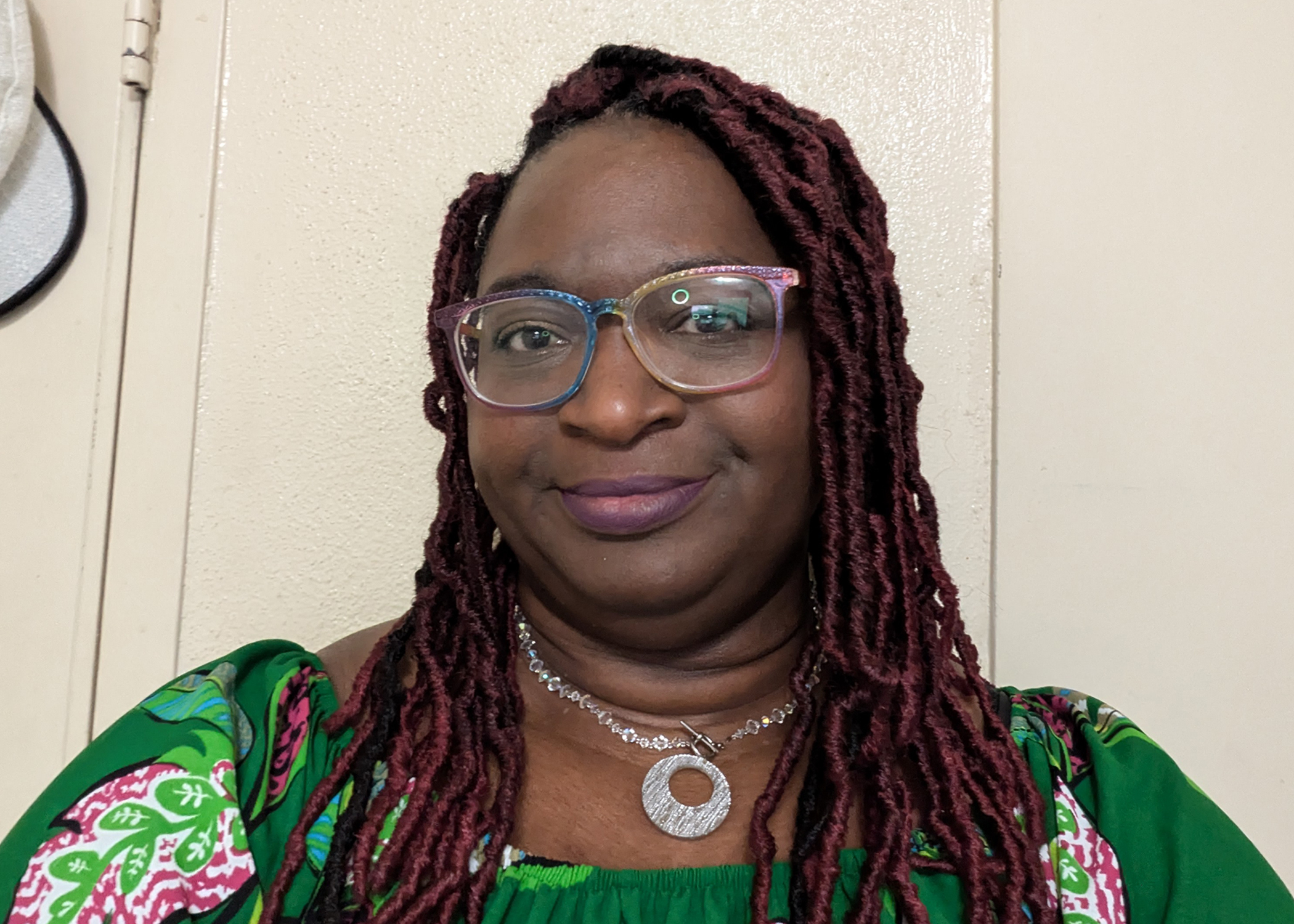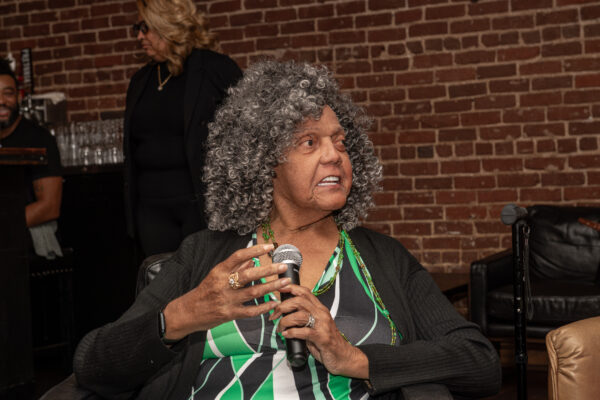
LaVonnia Moore had turned down the job three times before she finally accepted the role of manager for the Pierce County Library. “Everyone asked me why I turned it down, and my only answer was, ‘I live in that town,’” said Moore, a native of Blackshear.
She was ready to pass on the job again when the position became available in 2019. Still, the director of the Okefenokee Library System, a network of five libraries in Southeastern Georgia, asked Moore a question that challenged her thinking about the job. Why hadn’t she patronized the library much as a child, wondered the director?
“I said, I didn’t think it was welcoming to me or anyone else, youth or otherwise,” said Moore.
“Don’t you want that to change for the youth of the future?” the director asked.
“Yes,” said Moore.
“Sign here,” said the director, offering a contract.
After a decade spent working her way up from a part-time clerk, Moore had come full circle as the new library manager. But in June, her 15-year career in library sciences came to an end. Moore was fired by the director of the Three Rivers Library System, a larger library system where Pierce County Library had been reassigned in 2024.
Library officials told Moore she was being fired for displaying a book that featured a transgender child, she said. The book, “When Aidan Became a Brother” by Kyle Lukoff, was selected by library patrons for the display.
Moore said she did not violate library or employment policies in displaying the book, and her termination was the result of political pressure from members of a small but vocal group.
“I was devastated,” said Moore, who has since retained an attorney. “Out of everything on the display, it was just one book.”
Moore has joined an exclusive and unfortunate club of librarians across the country whose careers have been derailed by censorship and book challenges at school and public libraries. Materials related to race and gender diversity are most often the target, and librarians who defend the public’s freedom to read are the casualties.
Blackshear has been Moore’s home for 46 years. She attended what is now Coastal Pine Technical College, earning a degree in business administrative technology. In 2010, while volunteering for the Waycross Chamber of Commerce, Moore was invited to a networking event where she met the director of the Waycross-Ware County Public Library. The director thought Moore’s thinking aligned with the library’s mission and asked her to apply for a job.
Moore began working part-time as a clerk. For 10 hours a week, she assisted library guests, even putting her computer science skills to use by helping them navigate the computer system. “I love to read and I love introducing people to reading,” Moore said. “I just loved doing my job.”
Within 5 years, she became a full-time employee assisting with regional programs, doing community outreach, and coordinating teen and adult programs, before later becoming interim manager at Pierce County.
Moore enthusiastically dug into the role, developing a plan to reconfigure the library. She created designated spaces for children and teens. She invited Community members to contribute crafting supplies and play sets for the children. She also helped coordinate volunteers to lead scavenger hunts and clean the library.
For Moore, community involvement meant community investment. And her contributions were enough for supervisors to ask her to officially take over as manager, she said.
But she was already noticing disturbing changes in her community.
In 2024, when the Waycross library was decorated with images of rainbow colored hearts, flags and later a mural to show it was a welcoming space, Alliance for Faith and Family, a citizens group, challenged the display. They also expressed concerns about transgender people using the bathrooms, Moore said.
By July, due to these pressures, the Pierce County Library moved to the Three Rivers Library System, a larger system of 10 libraries north of Pierce County. “My thought was that this won’t solve anything,” Moore said, “The hate groups will still be there.”
Moore continued working to build a welcoming library culture. She filled the shelves with foreign language materials. She scheduled workshops on topics ranging from how to access FEMA funds to understanding Medicaid. When the state’s annual summer reading program was announced, Moore planned to join as she did each year, in order to receive state money for participation.
She hesitated when she learned the theme this year was “color your world.”
At the manager's meeting for Three Rivers, Moore asked, “How can we ‘color your world’ without the rainbow?” Library officials assured her she was in a new library system and wouldn’t face the same issues. Just follow the policy, they told her.
“I was still afraid to do a display until the patrons themselves came up and said 'We love the displays, can you approve the theme, and we will do it?’” Moore said. “The only thing that came into my head was community engagement.”
Different families joined in creating the display. As in many other libraries across the state, patrons added boxes of crayons, colorful book covers, and, of course, books and other materials with rainbows. The only stipulation was that the items had to come from inside the library, Moore said.
A child and parent brought “When Aiden became a Brother”, a book that had been on the library’s shelves for several years, to add to the display. Moore asked them if they had read the book. They said yes, she said, and told her they wanted everyone else to read it as well. “I would never tell a child no, you can’t read,” Moore said. “It is not my job to police what they read.”
The book cover features Aiden and his parents. Aiden, who is wearing a rainbow jacket, is revealed in the book to be transgender.
The first time Moore heard concerns about the display was when a former coworker alerted her to messages on social media from Alliance of Faith and Family. Moore sent the post to Jeremy Snell, director of the Three Rivers Library System. He asked her to meet him at the Pierce County Library. It was the last working day before the Juneteenth federal holiday when libraries would be closed.
In the meeting, Snell said they were terminating Moore because of the book. “I kept asking, what book?” Moore said. They showed her the cover of the book and reprimanded her for not vetting it before putting it on display, she said.
Moore said she had followed the display policy, the employee policy, and the code of ethics, but she was fairly certain the library had not followed the standard policy for book challenges.
The process typically involves completing a form and pulling the book from the shelves until it undergoes a regional review. She was unclear if anyone had done this since her termination.
Some residents quickly rallied to support Moore, who lives in public housing and is subsisting on limited unemployment benefits. She estimates she would have to travel at least an hour away from her community to find a comparable position at a library, and she is at a disadvantage without a degree in library science.
Family and friends have pledged financial assistance and emotional support. A fundraiser on GoFundMe has helped but Moore is still feeling hurt by the only community she has called home. “I loved going to work and helping other people and teaching people how to do things,” Moore said. “This has ruined my name and reputation, and it is disappointing and hurtful.”




